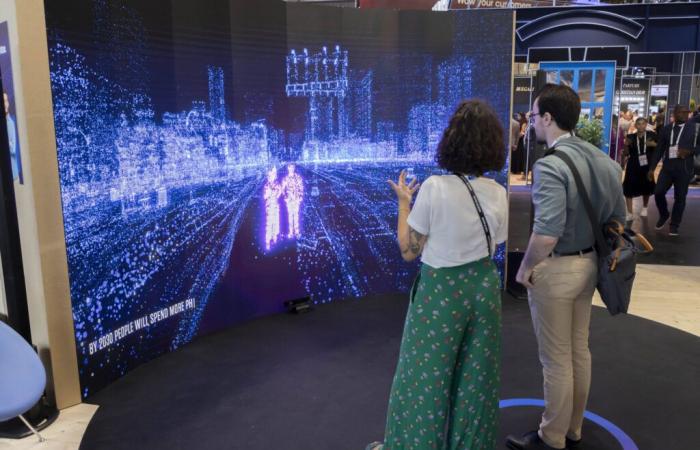In four years, Meta has sunk €50 billion into the metaverse. ©Belga Images
A movie, popcorn and 3D glasses?
Back in 2010: the World Cup in South Africa for some, the eruption of the Icelandic volcano paralyzing planes for others. But who remembers the launch of 3D televisions? With the arrival ofAvatar in the cinema, this technology is causing a sensation. Why not adopt it at home? The electronics giants firmly believed in it. Missed.
The reasons for the failure? First, the 3D glasses. Each brand produced its own models, making shopping complicated and frustrating. Then, the price: these televisions cost between €200 and €500 more than the classic versions. Worse, content producers quickly gave up in the face of exorbitant production costs and non-existent profitability. Paying more for rarely used technology? No thanks. Result: from 2016, the giants packed up.
Metaverse: aborted revolution
In 2021, Facebook becomes Meta. Mark Zuckerberg promises a revolutionary digital universe: concerts, offices, games, virtual economy… All via virtual reality headsets. The dream was seductive. The reality, much less.
In four years, Meta has sunk €50 billion into this project. But between the prohibitive price of the helmets (330 € minimum) and a vague concept for the general public, enthusiasm did not follow. Worse, the emergence of generative artificial intelligence, like ChatGPT, has stolen the metaverse's spotlight. Unlike the latter, AI offers concrete and immediate applications.
Ironically, the innovations developed for the metaverse ultimately boosted AI. From now on, Meta is betting everything on this technology, imagining social networks where AI personalizes content and interactions. A strategic pivot that could well save the Zuckerberg empire.
I believe I can fly… mais pas encore
Flying cars in the air? Science fiction has always been a dream. Uber even promised flying taxis for 2023. But between technological constraints, security, and lack of infrastructure, this future remains a mirage. In Belgium, for example, no vertiport (zone dedicated to takeoffs/landings) exists.
France hoped to shine with flying taxis for the Paris Olympics. But administrative delays and local opposition got the better of the project. Associations denounced a “gadget” reserved for the privileged, harmful to the environment and a source of noise pollution. Conclusion: the road, even clogged, still has a bright future ahead of it.
NFT: the illusion of digital art
A tweet or video transformed into a work of art? This is the bet of NFTs (non-fungible tokens), which allow you to purchase a certificate proving ownership of a digital asset. In 2021, madness is gripping investors. The summit: the sale of Everydays: The First 5000 Days of Beeple for $69.3 million.
But the fall is as rapid as the rise. Today, 95% of NFTs no longer have any value. Unregulated market, mediocre works, messy copies, extreme volatility… Everything contributed to the disaster. For many, NFTs will remain a bubble of speculation that burst as quickly as it was born.






